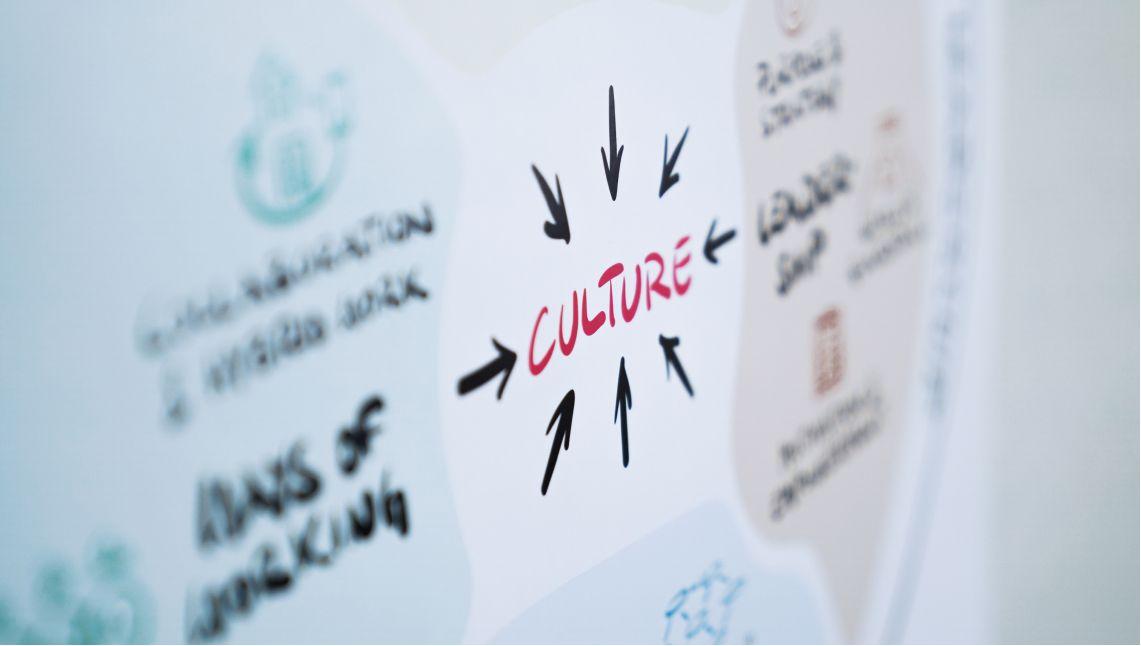Psychological safety: success formula for innovative companies
Why are some teams more successful and innovative than others? Psychological safety makes a difference.

When people feel safe in their team, companies are more innovative and successful. Modern leaders use this insight to boost performance and creativity in a secure work environment.
What is psychological safety?
Psychological safety was developed by Harvard professor Amy Edmondson as a concept for the workplace. She found in 1999 that teams work better together when people feel safe. In a psychologically safe environment, team members can communicate openly, offer constructive criticism and admit mistakes without fear of negative consequences. This improves, among other things, learning behavior and motivation, knowledge transfer, innovativeness and risk-taking of the entire team.
Whether team members experience a work environment as psychologically safe depends on how everyone in the group interacts with each other. In this, the concept differs from simply trusting individuals. Psychological safety does not mean that everyone always gets along or agrees, but that they interact with each other in an appreciative and trusting manner in the group. A safe atmosphere is all the more important for learning and team success the more complex the tasks are.

The importance of psychological safety in the team
Teams that foster psychological safety work more effectively together and achieve greater success. Their members are willing to challenge established procedures, ask questions, discuss ideas and experiment with new approaches. They share their knowledge openly and address mistakes transparently, allowing everyone in the team to learn from them. Because they are encouraged to continue even if they fail, psychologically safe individuals are not only more content but also more willing to take risks and be creative. This has a direct impact on a company's capacity for innovation and its long-term viability.
Research on high-performance teams has revealed that their success is not solely attributable to the skills or performance of individual members, but rather to the way they interact with one another. Psychological safety is a crucial element of success for high-impact teams, regardless of whether team members are interacting in person on a daily basis or working remotely from different locations. What matters most is the presence of mutual trust and psychological security. Nevertheless, discussing difficult topics in a chat or video call can be more challenging than in a face-to-face meeting. As a result, psychological safety requires special consideration in virtual and hybrid teams.
How can leaders promote psychological safety?
The unfortunate reality is that psychological safety cannot be enforced. However, the encouraging news is that leaders have the power to cultivate a supportive work environment within their team. By prioritizing personal responsibility, trust, openness and appreciation, and leading by example, they can effectively enhance the psychological safety of all team members. Here are some ways in which leaders can promote psychologically safe conditions:
Develop a fair and transparent leadership style Foster communication at eye level Encourage respectful interaction among team members Cultivate a feedback culture that values constructive criticism and transparently addresses mistakes Support the free expression of questions, suggestions and criticism Deal honestly with problems and difficulties Ensure that everyone has a voice in discussions and decision-making processes Encourage and support unconventional ideas and new approaches
In our free New Leadership workshop, which we designed specifically for personnel development, we share practical knowledge on the importance of psychological safety for team leadership.
Psychological safety is essential for agile teams
Psychological safety is particularly crucial for teams utilizing agile methodologies like Scrum or Kanban. In these contexts, where both processes and approaches are continually evaluated and team members self-organize, a significant level of personal accountability and trust is necessary. Without psychological safety, such conditions cannot exist. If criticism or errors are associated with negative repercussions, agile methodologies will not be effective.
Only those who can count on the support of their team are willing to suggest innovative solutions, own up to mistakes and tackle challenges. And this is precisely what results in more efficient processes and superior outcomes in the long term. However, a culture of trust does not emerge on its own; establishing psychological safety is a demanding leadership responsibility. Modern managers create a positive work environment characterized by mutual respect and lead by example to ensure fair, empathetic employees.
Artikel teilen
Setze neue Impulse!
Newsletter
Keine Themen mehr verpassen?Halte dein Wissen auf dem neuesten Stand! Mit dem Brainbirds Newsletter liefern wir dir relevante Inhalte rund um modernes Arbeiten direkt in dein Postfach!
